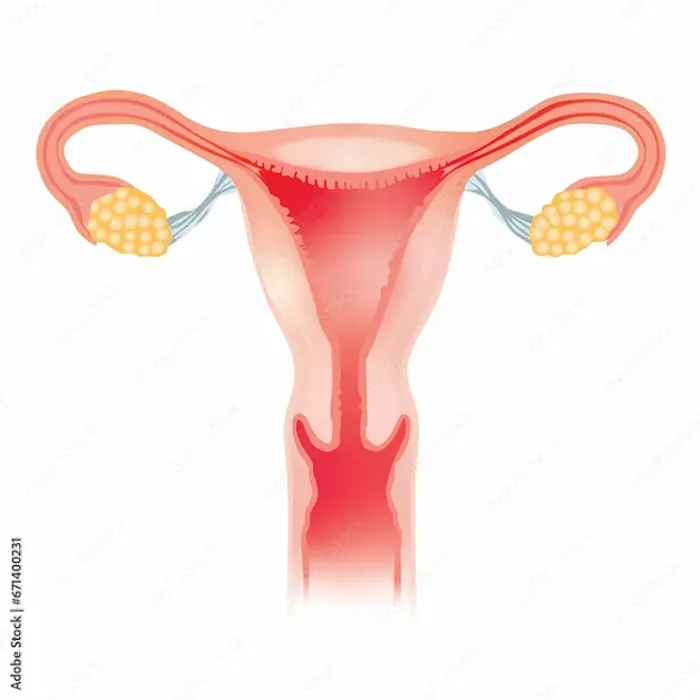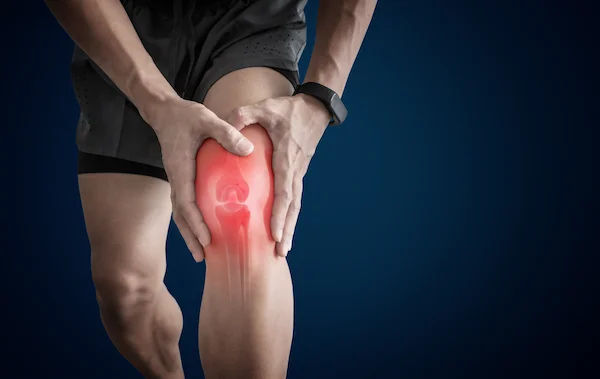Retroverted Uterus Causes, Symptoms and Fertility
Learn about the causes, symptoms, and fertility impact of a retroverted (tilted) uterus. Understand diagnosis, treatment options, and when to seek medical help.

Written by Dr. Dhankecha Mayank Dineshbhai
Reviewed by Dr. Siri Nallapu MBBS
Last updated on 26th Aug, 2025

Introduction
A retroverted uterus, also called a tilted uterus, is a condition where the uterus tilts backward toward the spine instead of leaning forward toward the bladder. While this is a common anatomical variation, many women may not even realize they have it unless they experience symptoms or face fertility challenges.
If you’ve been diagnosed with a retroverted uterus or suspect you might have one, don’t worry; it’s usually not a cause for concern. Let’s explore what it means, its possible causes, symptoms, and how it may (or may not) affect fertility.
What Is a Retroverted Uterus?
Normally, the uterus tilts slightly forward toward the abdomen. However, in about 20-30% of women, the uterus tilts backward toward the spine. This is called a retroverted uterus.
Types of Retroverted Uterus:
1. Congenital (from birth) – Many women are born with a naturally tilted uterus.
2. Acquired (developed later) – Caused by conditions like endometriosis, fibroids, pelvic infections, or scarring after surgery.
Causes of a Retroverted Uterus
A retroverted uterus can happen due to:
1. Genetics – Some women are simply born with this uterine position.
2. Childbirth – Pregnancy and labor can sometimes cause the uterus to shift backward.
3. Pelvic Inflammatory Disease (PID) – Infections can lead to scarring, pulling the uterus backward.
4. Endometriosis – Tissue growth outside the uterus may cause adhesions that tilt it.
5. Fibroids or Tumors – Non-cancerous growths can change the uterus’s position.
6. Menopause – Lower estrogen levels can weaken pelvic muscles, causing the uterus to tilt.
Symptoms of a Retroverted Uterus
Most women with a retroverted uterus experience no symptoms at all. However, some may notice:
Pain during intercourse (deep penetration may be uncomfortable)
Lower back pain, especially during periods
Painful periods (dysmenorrhea)
Urinary issues (frequent UTIs or difficulty emptying the bladder)
Difficulty inserting tampons
If you experience severe pain or discomfort, consult a doctor to rule out other conditions like endometriosis or fibroids.
Does a Retroverted Uterus Affect Fertility?
The good news is that a retroverted uterus alone does not usually cause infertility. Many women with this condition conceive naturally without any issues. However, if infertility occurs, it’s likely due to an underlying condition (like endometriosis or fibroids) rather than the tilt itself.
Pregnancy with a Retroverted Uterus
In most cases, the uterus corrects its position by the second trimester as the baby grows.
Rarely, a "trapped uterus" may occur, where the growing uterus gets stuck in the pelvis, causing discomfort. This is treatable with medical help.
If you’re struggling to conceive, consult a fertility specialist to check for other potential factors.
Consult Top Specialists for Personalised Tips
Managing a Retroverted Uterus
Since a retroverted uterus is usually harmless, no treatment is needed unless it causes discomfort. However, some tips can help:
1. Pain Relief
Use a heating pad for cramps.
Over-the-counter pain relievers (like ibuprofen) can help with menstrual pain.
2. Pelvic Floor Exercises
Strengthening pelvic muscles with Kegel exercises may help support the uterus.
3. Positions for Comfort
If sex is painful, try different positions that reduce deep penetration.
Sleeping on your stomach may help ease discomfort.
4. Medical Treatments (if needed)
Pessary – A small device inserted into the vagina to support the uterus.
Surgery (rare cases) – If severe pain or fertility issues arise, a doctor may suggest a minor procedure to reposition the uterus.
When to See a Doctor
Consult a gynecologist if you experience:
Severe pelvic pain
Painful intercourse affecting your quality of life
Difficulty getting pregnant after a year of trying
Frequent UTIs or bladder issues
A simple pelvic exam or ultrasound can confirm a retroverted uterus and rule out other conditions.
Final Thoughts
A retroverted uterus is a normal variation and usually doesn’t cause health problems. Many women live without ever knowing they have it! If you do experience discomfort, simple lifestyle changes or medical guidance can help. If you’re concerned about fertility or symptoms, Apollo 24|7 offers expert consultations and diagnostic tests to provide personalized care.
Consult Top Obstetrics and Gynaecology Surgeon
Consult Top Specialists for Personalised Tips
Dr. K Anusha
Obstetrician and Gynaecologist
4 Years • MBBS, DGO
Yemmiganur
SRINIVASAA HOSPITAL, Yemmiganur

Dr. Mona Yadav
Obstetrician and Gynaecologist
19 Years • MBBS, MD (Obstetrics & Gynaecology)
Dombivli
Nulife multispeciality, Dombivli

Dr. Parul Sharma
Obstetrician and Gynaecologist
8 Years • MBBS, MS (Obstetrics & Gynaecology)
New Delhi
THE DOCTORS NESST, New Delhi
Dr. J Aswini Sowndarya
Obstetrician and Gynaecologist
4 Years • MBBS, MS Obstetrics & Gynaecology, FMAS, FART
Rajamahendravaram
Tholat Memorial Multi Speciality Hospital, Rajamahendravaram

Dr. Asha Rani Singh
Obstetrician and Gynaecologist
24 Years • MBBS DGO
Delhi
Dr Asha Rani Singh Clinic, Delhi
Consult Top Obstetrics and Gynaecology Surgeon
Dr. K Anusha
Obstetrician and Gynaecologist
4 Years • MBBS, DGO
Yemmiganur
SRINIVASAA HOSPITAL, Yemmiganur

Dr. Mona Yadav
Obstetrician and Gynaecologist
19 Years • MBBS, MD (Obstetrics & Gynaecology)
Dombivli
Nulife multispeciality, Dombivli

Dr. Parul Sharma
Obstetrician and Gynaecologist
8 Years • MBBS, MS (Obstetrics & Gynaecology)
New Delhi
THE DOCTORS NESST, New Delhi
Dr. J Aswini Sowndarya
Obstetrician and Gynaecologist
4 Years • MBBS, MS Obstetrics & Gynaecology, FMAS, FART
Rajamahendravaram
Tholat Memorial Multi Speciality Hospital, Rajamahendravaram

Dr. Asha Rani Singh
Obstetrician and Gynaecologist
24 Years • MBBS DGO
Delhi
Dr Asha Rani Singh Clinic, Delhi




